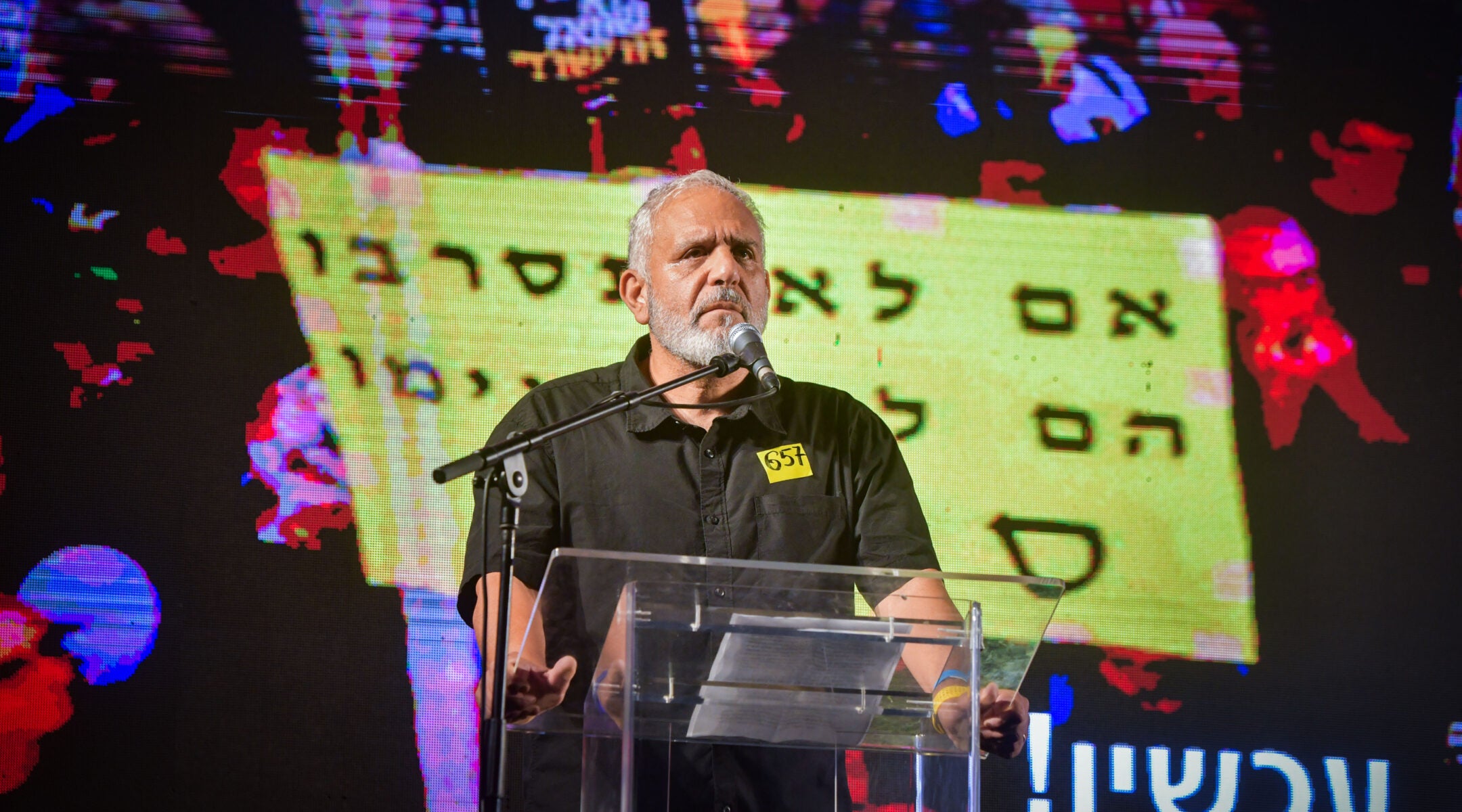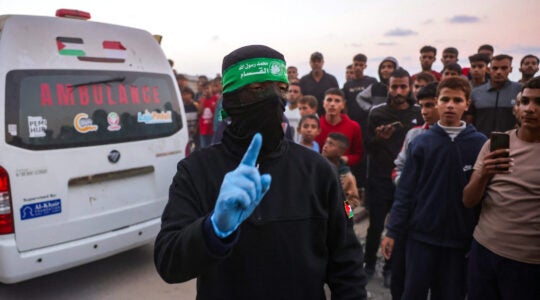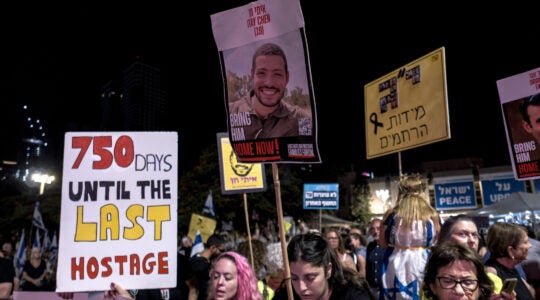TEL AVIV — Standing inside a mass protest in Habima Square to demand an end to the war in Gaza, Roy Rieck said the atmosphere felt more charged than at previous demonstrations. The difference, he said, is that it’s not just the plight of the 50 remaining Israeli hostages weighing on those who turned out.
“There was more of a feeling that people want to stop the war not only to bring back the hostages, but also from the understanding that the war has gone too far — that the cost to soldiers is too high, and that the suffering in Gaza has become unbearable,” he said.
The rally Thursday night came as images of starving children and accounts of unrelenting hunger poured out of Gaza, where Israel has been fighting for more than 21 months, breaking through the discourse even among those inclined to support the war. But an even more urgent development took center stage.
The rally, organized by a coalition of bereaved families, relatives of hostages, and parents of combat soldiers, came hours after U.S. envoy Steve Witkoff blamed Hamas for torpedoing the ceasefire and hostage negotiations in Doha, resulting in the return of Israeli and U.S. delegations from the Qatari capital. Israeli sources reported that Hamas had introduced a new demand for the release of some members who participated in the Oct. 7, 2023, attack.
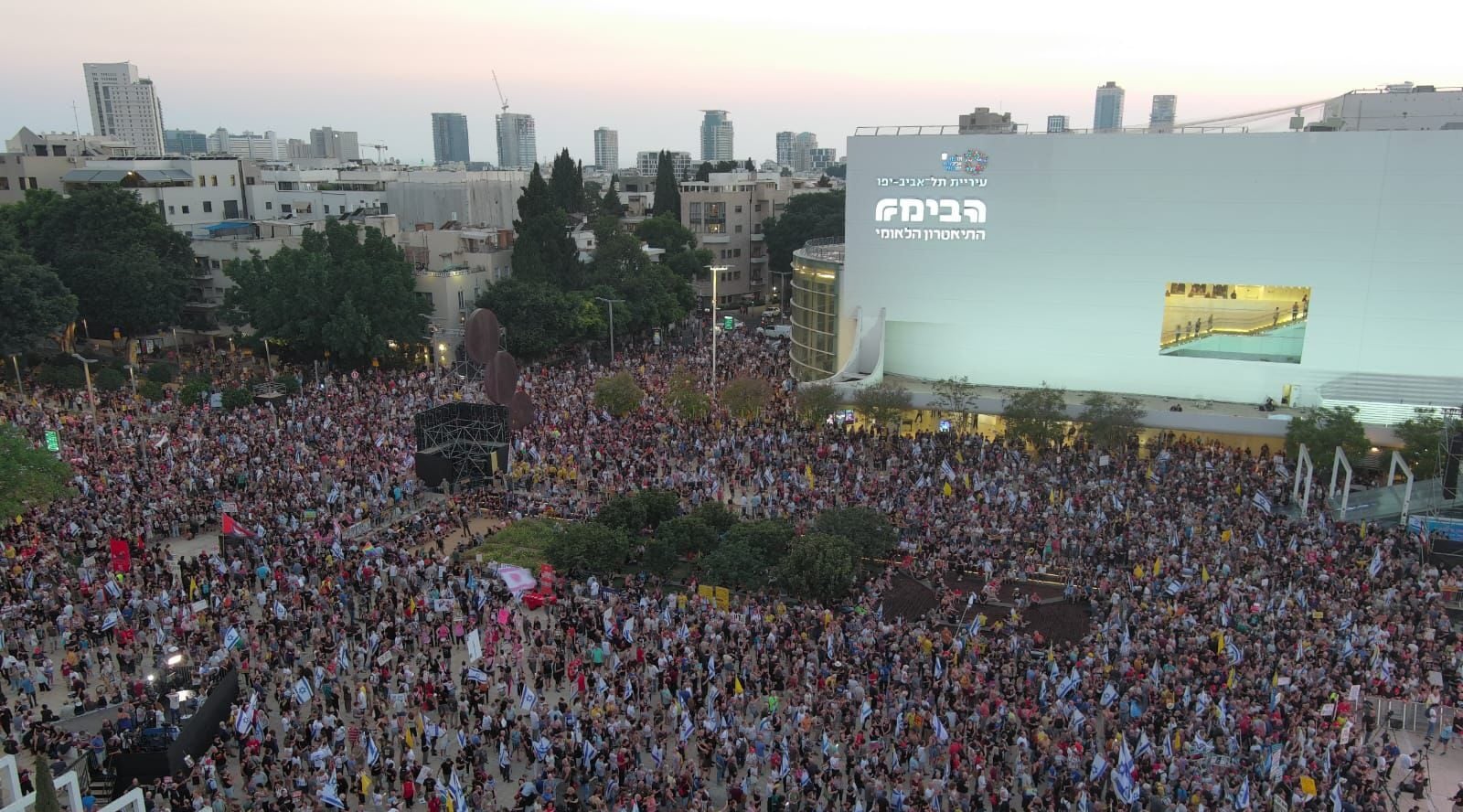
A rally against the war in Gaza drew thousands to Tel Aviv’s Habima Square, July 24, 2025. (Yair Palti)
The apparent collapse of talks dashed hopes, stoked in recent days, that a deal to release at least some of the remaining hostages — of whom 20 are thought to be alive — was near.
The rally opened with a moment of silence for fallen soldiers, followed by a prayer for the safety of the troops and the return of the hostages.
Speakers included Effie Shoham, whose son Yuval was killed fighting in Gaza and who alluded to the crisis in Gaza.
“These days we face tough choices between choosing life and good, or war, hunger, death, and evil. We must choose life,” an emotional Shoham told the crowd. “I call on the Israeli government, on behalf of the people of Israel gathered here today, to stop the war.”
Noam Tibon, a retired major general who personally rescued family members from Hamas attackers on Oct. 7, 2023, said the war no longer had a “viable security aim.”
“It’s become a political war, managed by a failed government that sent our children to die while passing a shameful draft-dodging law,” he said, referring to a proposed bill granting expanded military exemptions to haredi Orthodox yeshiva students.
The IDF is “sinking deeper into the bleeding swamp of Gaza,” Tibon said.
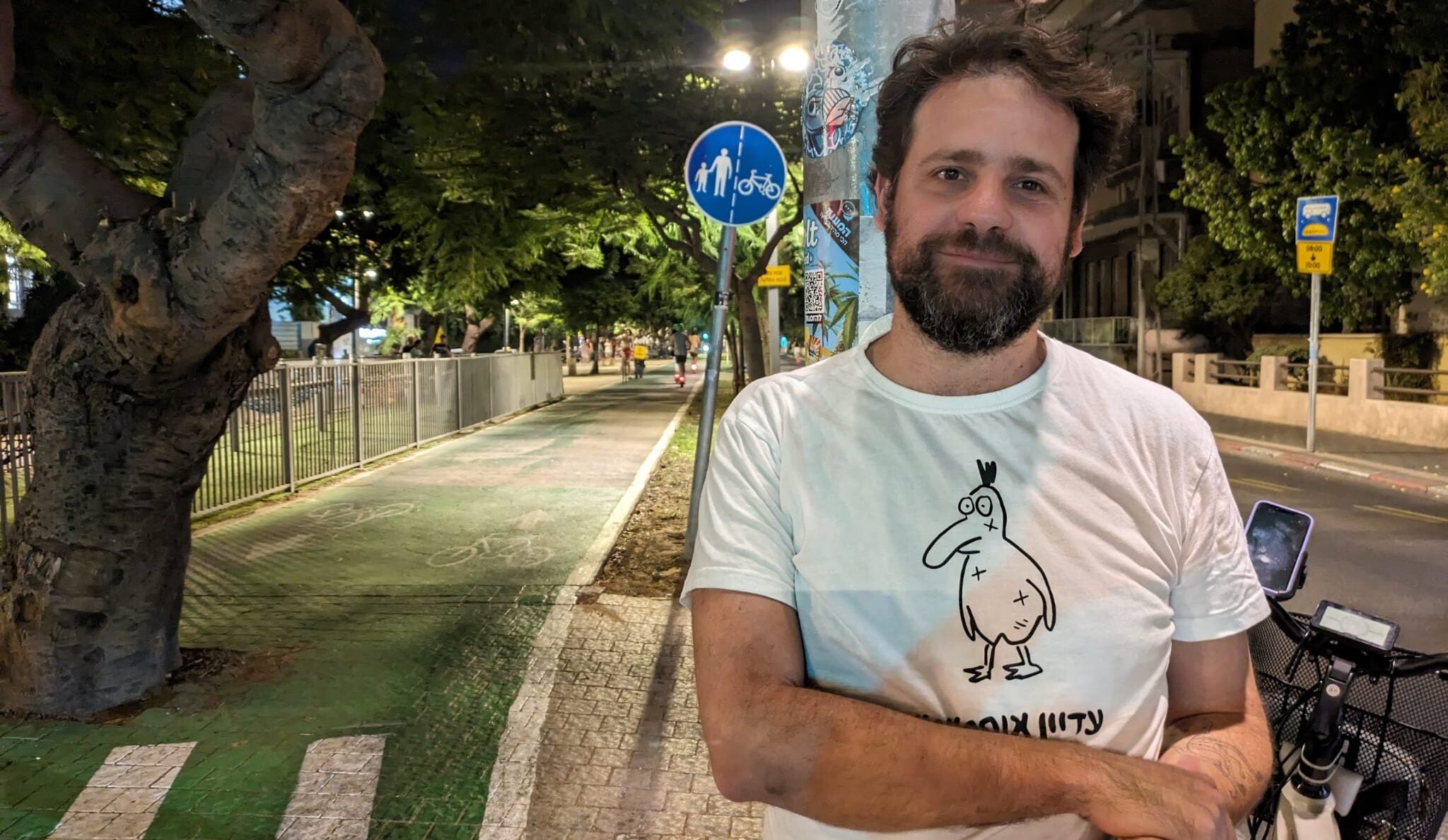
Roy Rieck was impressed by the size of the anti-war protest in Tel Aviv on July 24, 2025, but thought it should be bigger. (Deborah Danan)
Viki Cohen, whose son Nimrod is being held hostage in Gaza, said her son chose to serve in a tank unit out of “Zionism and love of the land,” but now “the country he loves so much is not defending him.”
She accused the government of pushing for partial hostage deals that could leave her son behind.
Raphi Ben-Shitrit, whose son Elroi was killed on Oct. 7, told the crowd that prolonging the war threatened “the future of the Zionist enterprise.” Ending the war, he said, was not a sign of weakness but a reflection of “the sanctity of life, the heroism of the Jewish spirit, and the strength of the Israeli spirit.”
A group of leftwing protesters held signs accusing Israel of genocide in Gaza and calling on soldiers to refuse service. Not far from them, others held banners identifying with “dignified Religious Zionism.”
“There is a growing sense that every day soldiers are dying for no good apparent reason,” said Yehuda Mirsky, an American-Israeli who had made the trip from Jerusalem, where he is a religious activist and scholar of Jewish thought.
He added that while early reports of famine in Gaza were once considered “disputable,” it now seemed clear Israel had taken on roles in Gaza it couldn’t sustain. Like Tibon, Mirsky cited the ultra-Orthodox draft exemptions as proof that Netanyahu was prolonging the war for political gain.
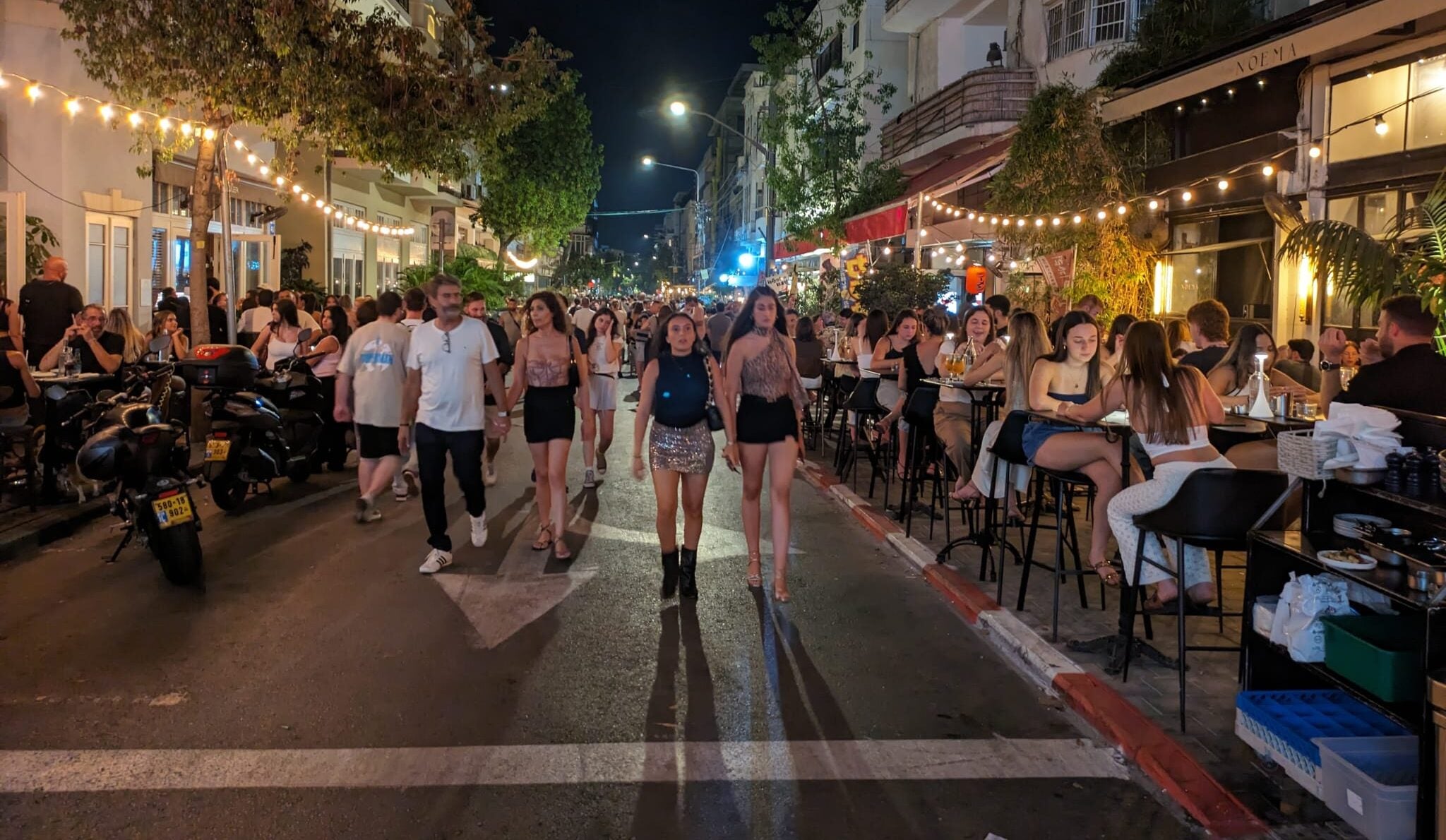
One block away from a mass protest against the Gaza war, Tel Aviv nightlife went on as usual, July 24, 2025. (Deborah Danan)
But as much as Rieck was heartened by the protest’s size, he lamented that the protest fell short of past mass movements. It lacked the sustained momentum of the 2023 judicial overhaul demonstrations, he said, when hundreds of thousands filled the streets week after week, and nor did it approach the scale of the 1980s antiwar rallies, when more than 400,000 Israelis gathered in Tel Aviv after the Sabra and Shatila massacres during the Lebanon War.
“We’re not yet seeing a critical mass,” Rieck said. “And look around you here in Tel Aviv — everywhere else, people are carrying on as usual.”
JTA has documented Jewish history in real-time for over a century. Keep our journalism strong by joining us in supporting independent, award-winning reporting.
